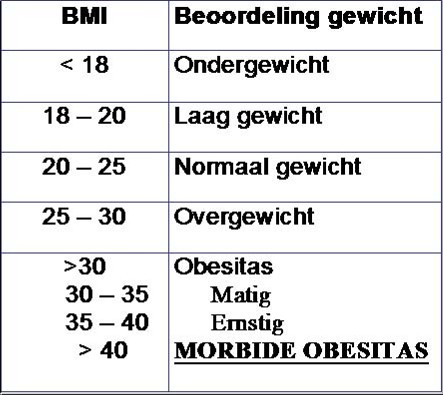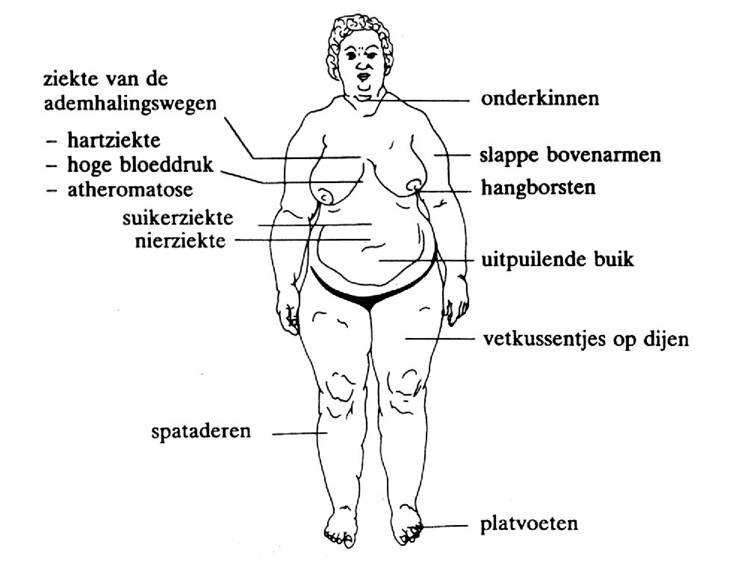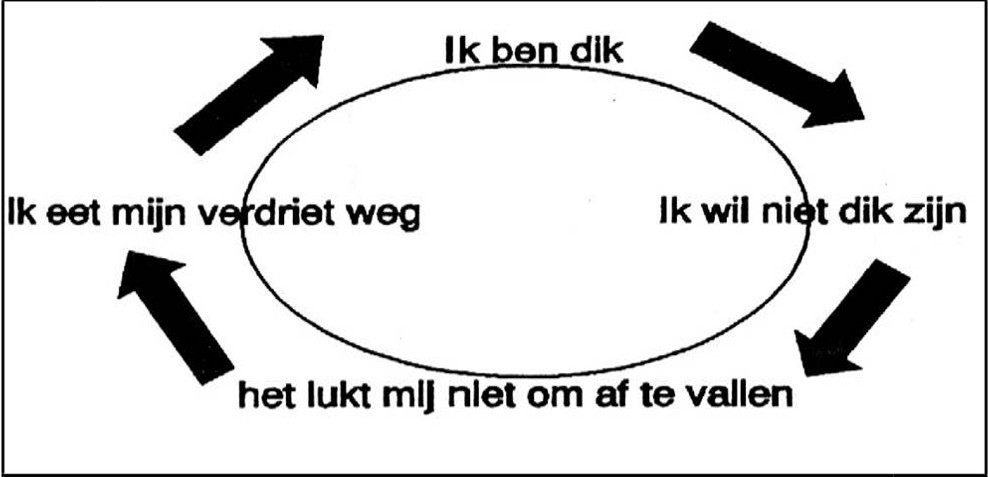About Obesity
Obesity is a state of excess fat storage compared tAfbeelding1o muscle and bone mass. Well known are the 'Apple' and 'Pear' figures.
Persons with obesity can be divided in groups based on their Body Mass Index or BMI. This can be calculated by using the calculator in the menu on the right.
When do we speak of obesity?
Persons with a normal weight
BMI : 20 - 25
waist : female < 80cm and male <94cm
A light to moderate overweight
- BMI : 25 - 30
- waist : female 80cm < 87cm and male 94cm < 101cm
- The chance of developing cardiovascular diseases in this group is 1,5- 2 x higher than with a normal weight
Severe overweight or Obesity
- BMI : > 30
- waist : female > 88cm and male > 101cm
- The chance of developing cardiovascular diseases in this group is 2,5- 4 x higher than with a normal weight

What symptoms can one develop due to Obesity?
|
Physical complaints: most important are: diabetes type 2 hypertension cardiovascular bone- and joint-problems |
 |
Psychosocial complaints

Definition of morbid Obesity
1. Obesity is a disease which is chronic and multifactorial.
Genetical-related:
- hormonal andbiochemical
- Environment-related:
- Food,cultural andeconomic factors
2. The disease results in excessive fat storage which leads to life-threatening situations concerning:
Medical:
- diabetic ,cardiovascular
- Psychological
- Social
- Physical
- Economic co-morbidities
How can we treat Morbid Obesity?
There are many ways to loose weight. Achieving short-term success is not difficult, but most ways of treatment (diet, medication, physical training) fail on the long run. The biggest problem in treating Obesity is to find a way in maintaining the lower weight.
There are multiple surgical techniques (bariatric surgery) which try to give a solution to this problem.
These can be divided in two major groups:
1. The restrictive procedures, where food intake is restricted.
- gastric banding
- sleeve -resection
2. The malabsorptive procedures where complete absorption of nutrition in the bowel is prevented
- gastric bypass
- scopinaro
- duodenal switch
Not every procedure suits an obese patient. Depending on weight, medical history/complaints, eating habits, consumption of sweets and fat etc. will determine which procedure is most suitable. A thorough intake by dietician and surgeon will be necessary.


 Inschrijven voor Kinesitherapie
Inschrijven voor Kinesitherapie